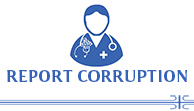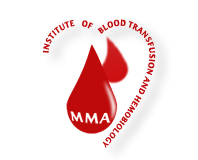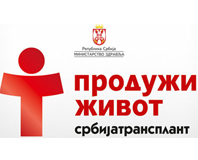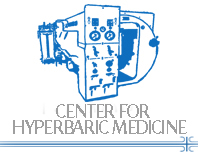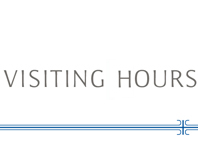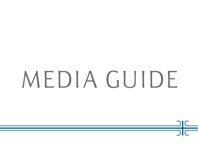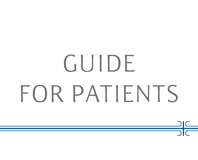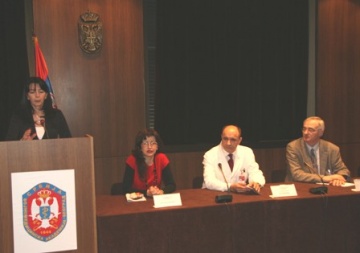
Antidote Supplies in Serbia: The Role of the MMA’s Poison Control Center
10. 03. 2011
Belgrade, March 10, 2011. – Today, the MMA hosted the professional event devoted to ‘’Antidote Availability and supplies in Serbia: The Role of the National MMA’s Poison Control Center and Cooperation Modalities’’.
Participation in this event was taken by the representatives of the Republic of Serbia Ministries of Defense, Health and Environment and Spatial Planning, the Ministry of Interior’s Sector for Emergency Situations, Public Health Institute, directors and physicians from the national health care facilities, representatives of the Emergency Services, occupational medicine specialists and many others.
Colonel, Assist. Prof. Dr. Dragan Dinčić offered the participants in the event a warm welcome and wished them to make it a great success.
The introductory lecture on ‘’Spectrum of cyanide poisoning and the algorithm for pre-hospital and hospital treatment’’ was delivered by the eminent clinical toxicologists from France Prof. Dr. Frédéric Baud from the Clinic for Emergency Medicine and Toxicology of the Laribosière Hospital in Paris. Professor Baud is the president of the World Health Organization’s Working Group on antidotes to poisoning by cyanide and team leader of numerous international counter-terrorism expert teams. He presented the experiences of French toxicologists in managing the acute cyanide poisoning as well as the efficacy of hidroxocobalamin used to treat such poisoning in both the pre-hospital and hospital settings. Cyanides are usually used in metallurgy, pharmaceutical and chemical industry, and are the most common cause of poisoning by cyanide, i.e. gases in fire smoke
The head of the MMA’s Poison Control Center, a military employee, Prof. Dr. Slavica Vučinić gave the lecture on the ‘’Role of the National MMA’s Poison Control Center within the National Health Care System: Perspectives and Cooperation Modalities’’.
‘’In close partnership with the European Commission and the International Program on Chemical Safety (IPCS), the World Health Organization (WHO) defined modalities and gave recommendations for toxicological service structuring, on the basis of which our Poison Control Center was established in 1997’’, Prof. Vučinić said, and emphasized that our Center had already launched the initiative for implementation of pan-European system and harmonization of poisoning management protocols including the Protocol on antidote therapy for cyanide poisoning. ‘’To respond to the expressed need for standardization of methodology, quality of work, and the procedure for collection of poisoning-related data, joint efforts and action should be undertaken by relevant institutions within a country’’, notified Prof. . Vučinić.
The World Health Organization points out that along with the increase in the number of toxic chemicals, the risk to human health and environment from their use increases as well. Chemical accident of various scale happen almost every at some place in the world. The availability and supplies of antidotes create the problems, and, for that reason, they are given a special attention in the world nowadays. Only large medical hospital centers can boast supplies of antidotes, but most of them have neither developed hospital plans for their use nor personnel qualified and trained for rapid response to such chemical emergencies. The establishment of cooperative network between poison control centers, healthcare facilities, industries and relevant state institutions was proposed as a solution to that problem. Such cooperation modalities would, in the first place, allow for an integrated assessment of risks and needs for antidotes, better supply, coordination and management of supplies, proper approach to medical management of the injured and environmental protection in accidental situations.
The military employee, Assist. Prof. Dr. Elizabeta Ristanović, the head of the MMA’s Morale and PR Department, spoke about the Informing the public in the circumstances of chemical and biological accidents.
The introductory lecture on ‘’Spectrum of cyanide poisoning and the algorithm for pre-hospital and hospital treatment’’ was delivered by the eminent clinical toxicologists from France Prof. Dr. Frédéric Baud from the Clinic for Emergency Medicine and Toxicology of the Laribosière Hospital in Paris. Professor Baud is the president of the World Health Organization’s Working Group on antidotes to poisoning by cyanide and team leader of numerous international counter-terrorism expert teams. He presented the experiences of French toxicologists in managing the acute cyanide poisoning as well as the efficacy of hidroxocobalamin used to treat such poisoning in both the pre-hospital and hospital settings. Cyanides are usually used in metallurgy, pharmaceutical and chemical industry, and are the most common cause of poisoning by cyanide, i.e. gases in fire smoke
The head of the MMA’s Poison Control Center, a military employee, Prof. Dr. Slavica Vučinić gave the lecture on the ‘’Role of the National MMA’s Poison Control Center within the National Health Care System: Perspectives and Cooperation Modalities’’.
‘’In close partnership with the European Commission and the International Program on Chemical Safety (IPCS), the World Health Organization (WHO) defined modalities and gave recommendations for toxicological service structuring, on the basis of which our Poison Control Center was established in 1997’’, Prof. Vučinić said, and emphasized that our Center had already launched the initiative for implementation of pan-European system and harmonization of poisoning management protocols including the Protocol on antidote therapy for cyanide poisoning. ‘’To respond to the expressed need for standardization of methodology, quality of work, and the procedure for collection of poisoning-related data, joint efforts and action should be undertaken by relevant institutions within a country’’, notified Prof. . Vučinić.
The World Health Organization points out that along with the increase in the number of toxic chemicals, the risk to human health and environment from their use increases as well. Chemical accident of various scale happen almost every at some place in the world. The availability and supplies of antidotes create the problems, and, for that reason, they are given a special attention in the world nowadays. Only large medical hospital centers can boast supplies of antidotes, but most of them have neither developed hospital plans for their use nor personnel qualified and trained for rapid response to such chemical emergencies. The establishment of cooperative network between poison control centers, healthcare facilities, industries and relevant state institutions was proposed as a solution to that problem. Such cooperation modalities would, in the first place, allow for an integrated assessment of risks and needs for antidotes, better supply, coordination and management of supplies, proper approach to medical management of the injured and environmental protection in accidental situations.
The military employee, Assist. Prof. Dr. Elizabeta Ristanović, the head of the MMA’s Morale and PR Department, spoke about the Informing the public in the circumstances of chemical and biological accidents.

